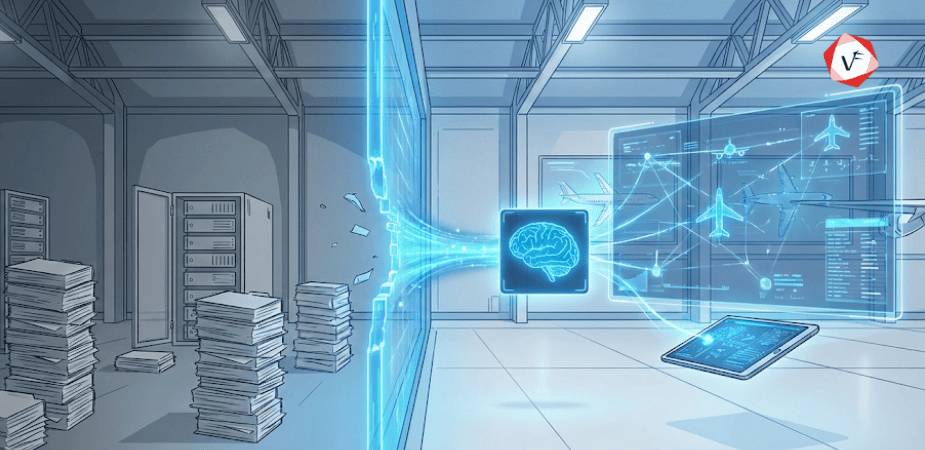Robotic Process Automation (RPA) is one of the fastest-growing fields in the tech industry. Companies continually seek ways to streamline repetitive tasks, improve efficiency, and reduce costs. RPA developers play a crucial role in helping businesses automate these tasks using software robots, or “bots.”
If you’re considering a career in RPA development, 2025 is an excellent time to start. The demand for RPA professionals is rising, and there are plenty of resources available to help you gain the skills you need. In this blog, we’ll explore what RPA development is, the steps to becoming an RPA developer, the necessary skills, and how to get started in this exciting field.
What Is RPA Development?
RPA development involves creating and deploying software robots that mimic human actions. These bots can perform repetitive tasks like data entry, invoice processing, and customer service queries. By automating these tasks, businesses can free up human workers for more valuable and complex work.
RPA developers use specialized tools and platforms, such as UiPath, Automation Anywhere, and Blue Prism, to design and implement bots that can operate across different applications. RPA bots are not just limited to specific tasks; they can integrate with multiple systems and adapt to various business needs.
Why Become an RPA Developer?
There are several reasons why becoming an RPA developer is a great career choice in 2025:
- High demand: Companies across industries are adopting RPA to improve efficiency and reduce costs.
- Lucrative career: RPA developers are well-paid, with salaries typically higher than many other IT roles.
- Growth opportunities: As automation continues to evolve, RPA developers will have the chance to work on cutting-edge technologies.
- Job satisfaction: Automating tedious tasks can make a big impact on businesses and employees, leading to high job satisfaction.
Steps to Become an RPA Developer in 2025
Becoming an RPA developer doesn’t happen overnight, but with the right approach, you can acquire the necessary skills and experience to start your career. Here’s a step-by-step guide on how to become an RPA developer in 2025:
1. Understand the Basics of RPA
Before diving into the technical aspects, it’s important to understand what RPA is and how it’s used in business. Research the benefits of RPA, the types of tasks it can automate, and why companies invest in it. Familiarizing yourself with the core concepts of RPA will give you a solid foundation to build upon.
2. Learn Programming Fundamentals
While RPA platforms are designed to be user-friendly, having a basic understanding of programming will be incredibly helpful. Knowing programming languages such as Python, Java, or C# will make it easier for you to build bots and customize their behavior.
Some of the key programming concepts you should learn include:
- Variables and data types
- Control flow (if-else statements, loops)
- Functions and procedures
- Error handling
These concepts will help you understand how bots make decisions and process data.
3. Choose an RPA Platform
There are several RPA platforms available, each with its own set of tools and features. The most popular platforms include:
- UiPath
- Automation Anywhere
- Blue Prism
It’s a good idea to pick one platform to focus on initially. Most RPA platforms offer free tutorials, documentation, and training programs. For example, UiPath Academy provides free courses for beginners, allowing you to learn how to use the platform effectively.
Start by learning the basic features of your chosen platform, such as how to build workflows, design automation processes, and deploy bots.
4. Take RPA Certification Courses
Many RPA platforms offer official certification programs. Earning a certification will give you credibility and prove to employers that you have the skills needed to work as an RPA developer.
Here are some popular RPA certifications:
- UiPath Certified RPA Developer
- Automation Anywhere Certified Advanced RPA Professional
- Blue Prism Developer Certification
These certification programs typically cover topics such as:
- Building automation workflows
- Working with different types of data
- Integrating bots with multiple systems
- Debugging and optimizing bots
Certifications not only boost your resume but also deepen your understanding of RPA development.
5. Practice by Building Simple Bots
The best way to learn RPA development is by practicing. Start by building simple bots that automate everyday tasks. For example, you can create a bot that:
- Automatically extracts data from an Excel sheet
- Sends automated emails based on specific triggers
- Copy data from one application to another
As you gain confidence, challenge yourself by creating more complex bots that can handle multiple tasks or integrate with various applications.
6. Learn About Process Analysis
As an RPA developer, you’ll need to work closely with business teams to identify tasks that can be automated. Understanding process analysis will help you figure out which tasks are good candidates for automation.
You can learn process analysis by:
- Studying business workflows: Learn how different tasks are carried out in business settings.
- Identifying bottlenecks: Recognize tasks that take up time and could benefit from automation.
- Working with stakeholders: Understand the goals of the business and how automation can help achieve them.
Having a good grasp of process analysis will allow you to create bots that bring real value to businesses.
7. Keep Up with Industry Trends
The field of RPA is constantly evolving. New tools, techniques, and best practices are emerging all the time. To stay competitive, it’s important to keep up with industry trends.
Some ways to stay updated include:
- Following RPA blogs and forums: Websites like UiPath Community and Automation Anywhere Blog share valuable insights and updates on RPA.
- Joining RPA communities: Engage with other RPA professionals through online communities and forums. This will help you network and stay informed about the latest developments in the field.
- Attending webinars and conferences: Many RPA platforms host webinars and events where experts share their knowledge.
8. Build a Portfolio
As you gain more experience building bots, it’s important to showcase your work. Create a portfolio that includes examples of bots you’ve developed and the problems they solved. This will demonstrate your skills to potential employers and clients.
Your portfolio can include:
- Descriptions of the bots you built: Explain the task the bot automated and how it improved efficiency.
- Videos or screenshots: Visuals help to show how the bot works in real time.
- Outcomes: Share any measurable results, such as time saved or error reductions.
A strong portfolio will make you stand out from other candidates and increase your chances of landing a job as an RPA developer.
9. Look for RPA developer jobs.
Once you feel confident in your skills, it’s time to start applying for jobs. RPA developers are in demand across many industries, including finance, healthcare, and manufacturing.
10. Gain Hands-On Experience
Once you land your first RPA developer job, the learning doesn’t stop. Every project will provide new challenges and opportunities to improve your skills. Work closely with other developers and business analysts to deepen your understanding of how RPA can benefit different types of businesses.
Final Thoughts
Becoming an RPA developer in 2025 is an exciting career path with plenty of growth opportunities. By learning the basics of RPA, gaining proficiency in an RPA platform, earning certifications, and practicing your skills, you can position yourself for success in this in-demand field.
With companies across the globe adopting automation to improve efficiency, there’s no better time to start your journey as an RPA developer. Embrace the learning process, stay curious, and soon you’ll be on your way to building smart bots that help businesses run smoothly.





